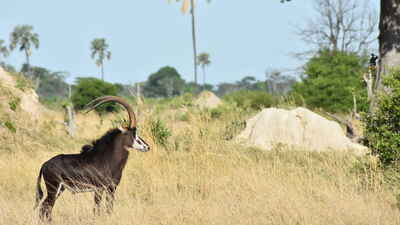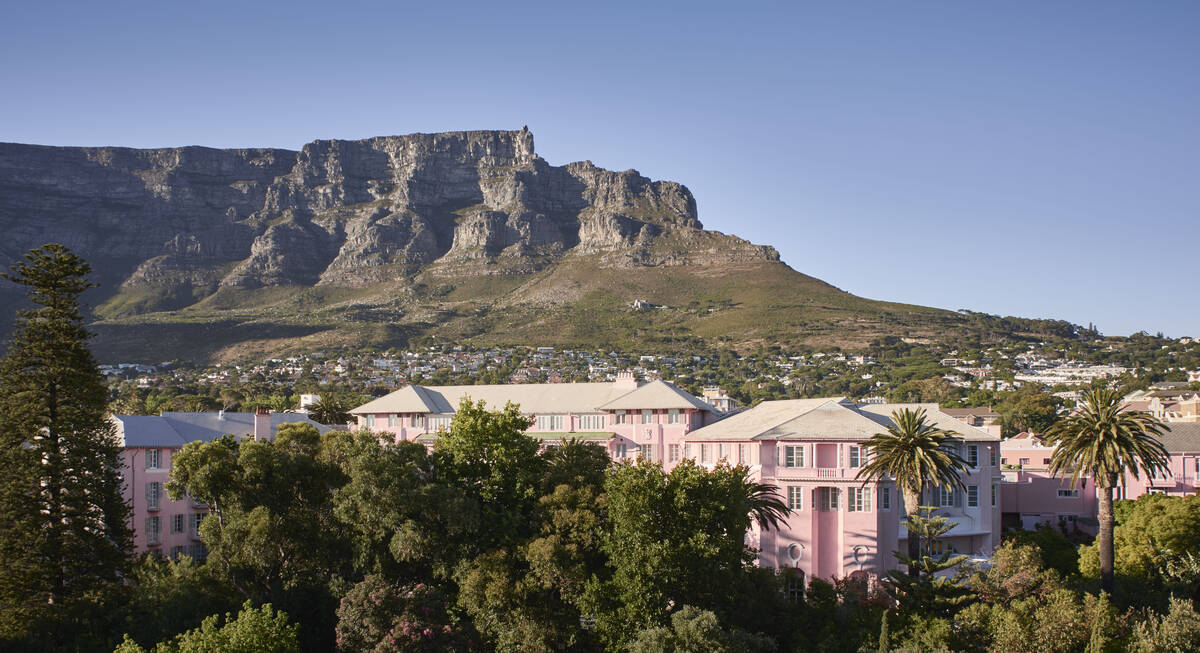Where to see Sable antelope in Rwanda
The sable is one of Africa’s most handsome antelope and renowned for its combative nature, able even to face down lions. Shy, and restricted in range, sightings of this species are always special.
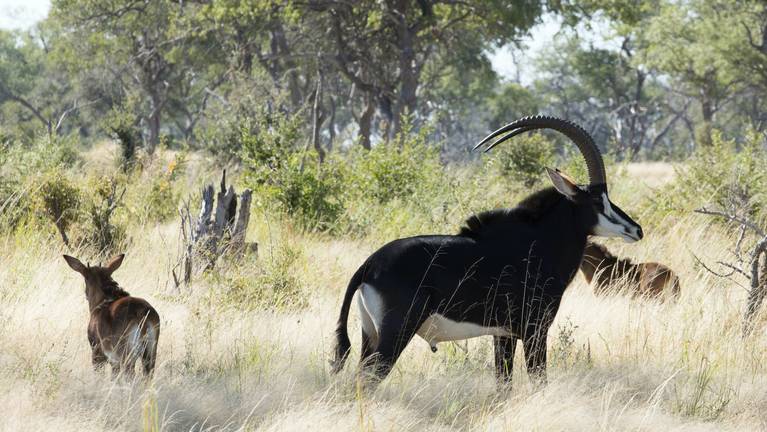
Quick facts about Sable antelope
| Scientific name: | Hippotragus niger | Habitat: | Savannah woodland |
|---|---|---|---|
| IUCN status: | Least Concern | Adult weight: | 220–235kg |
The sable belongs to the ‘horse-like’ antelope tribe (Hippotraginae), along with oryx and the slightly larger roan. Scientists recognise four subspecies, among which the giant sable of Angola is Critically Endangered.
Adult males are a striking glossy black, with a white belly and badger-like white face stripes. Their majestic profile is accentuated by a powerful neck and long, backward-arching horns. Females and young are slimmer and chestnut-brown, with shorter horns.
Small herds of females and young, accompanied by a single bull, frequent moist savanna woodland, where they both browse and graze. Males defend the herd against predators, going down on their knees to strike sweeping blows with their horns. They are known to have killed lions.
165cm
Record horn length (male)
3 years
Age at which young male leaves natal herd
11
Range countries
50–60,000
Estimated population (IUCN, 2017)
Where to see sable in Africa
Sable range from south-eastern Kenya to northern South Africa. Always quick to retreat from disturbance, they are among more prized antelope sightings on safari.
Top tips for viewing sable
Sable are never easy to find. The largest populations occur in the miombo and mopane woodland belts of southern Tanzania, western Zambia and northern Zimbabwe and Botswana. Top spots include Nyerere National Park / Selous (Tanzania), Hwange and Matobos (Zimbabwe), Moremi (Botswana) and Liwonde (Malawi), while a small herd in Kenya’s Shimba Hills National Reserve also offer reliable viewing.
Like roan, their close cousins, sable seldom linger in the open, but their daily visits to water offer an opportunity to observe the herd, with youngsters shepherded carefully among the adults. Be content to watch from a distance, as the noise of vehicles will often send them retreating towards cover. Lone bulls may be confident enough to allow a closer approach.
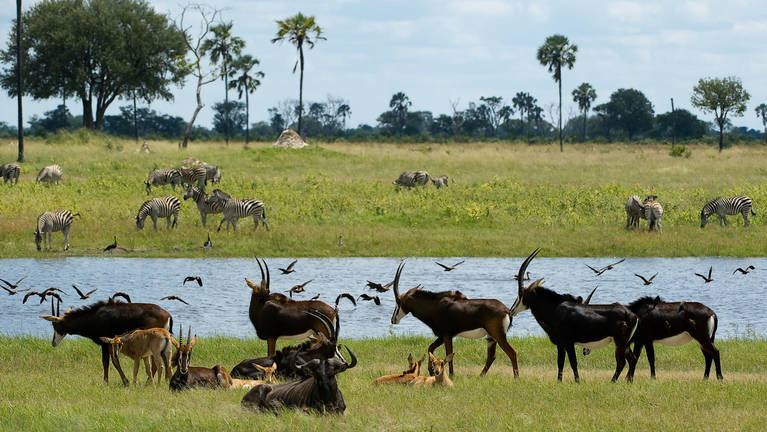
Our best Rwanda holidays for sable antelope sightings
Based on our travellers' reports, these ideas for Rwanda safaris are likely to give the best sable antelope sightings
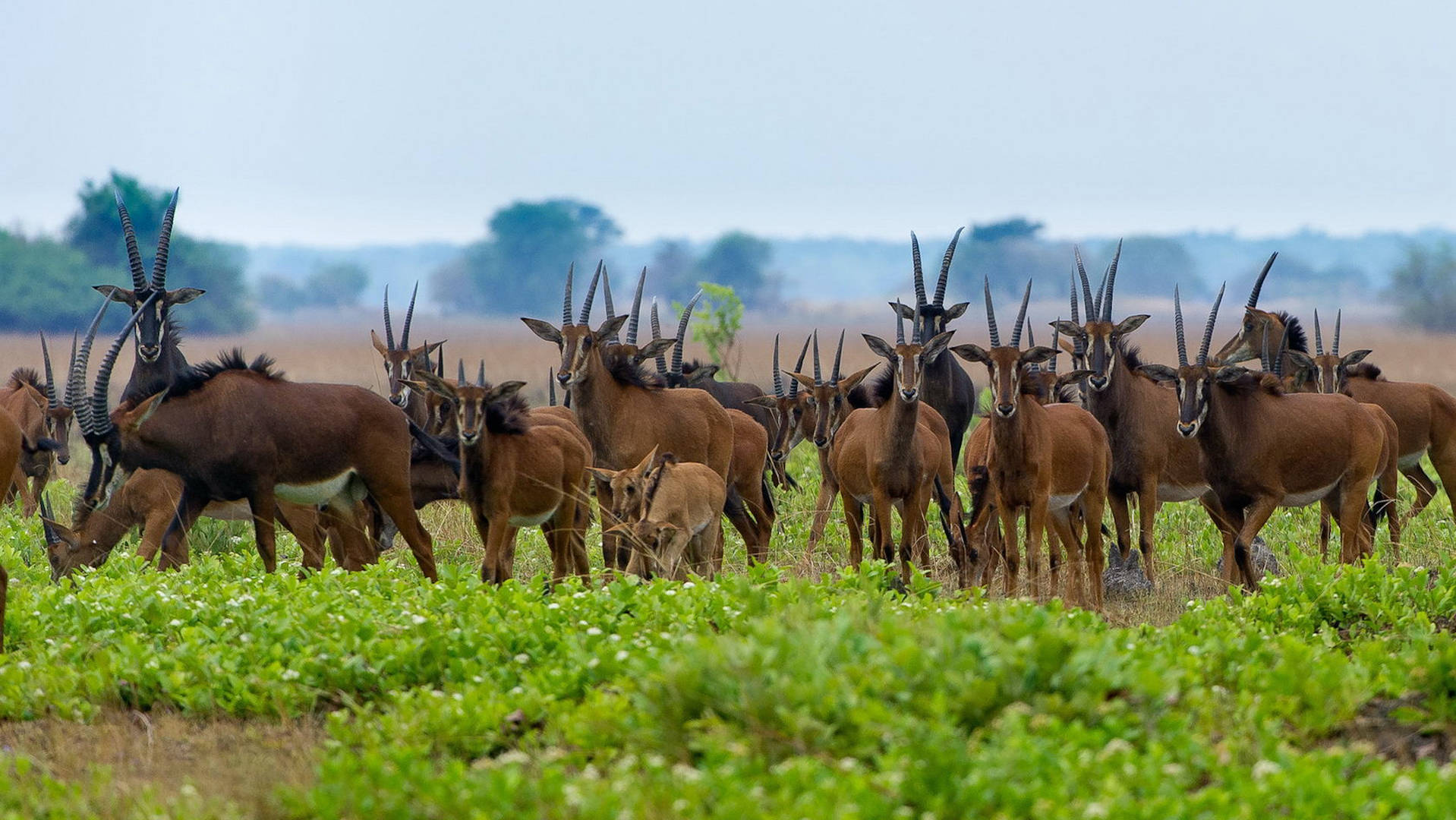
More information about sable antelope in our other destinations
Click here for detailed information about sable antelope in other countries, including the places for sighting sable antelope.
